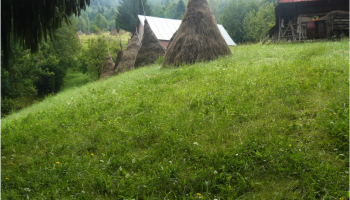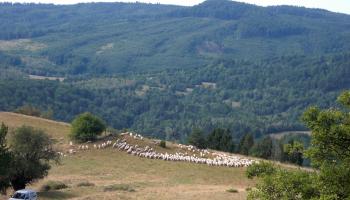Vyhľadávanie
 Enclosed land inSlovensko
Enclosed land inSlovenskoResearch: Martina Slámová, Jana Špulerová, Marta Dobrovodská, Dagmar Štefunková; upload: Bénédicte Gaillard. The entries are still in process.
[Read more] Poľnohospodársky využívaná pôda inSlovensko
Poľnohospodársky využívaná pôda inSlovenskoResearch: Martina Slámová, Jana Špulerová, Marta Dobrovodská, Dagmar Štefunková; upload: Bénédicte Gaillard. The entries are still in process.
[Read more]
 Hay making structures inSlovensko
Hay making structures inSlovenskoResearch: Martina Slámová, Jana Špulerová, Marta Dobrovodská, Dagmar Štefunková; upload: Bénédicte Gaillard. The entries are still in process.
[Read more]
 Vrchoviny inSlovensko
Vrchoviny inSlovenskoThe entries are still in process, the e-atlas is still under development
[Read more]Research: Martina Slámová, Jana Špulerová, Marta Dobrovodská, Dagmar Štefunková; upload: Bénédicte Gaillard. The entries are still in process.
[Read more]
 Pasienok inSlovensko
Pasienok inSlovenskoResearch: Martina Slámová, Jana Špulerová, Marta Dobrovodská, Dagmar Štefunková; upload: Bénédicte Gaillard.
[Read more] Terasované krajiny inSlovensko
Terasované krajiny inSlovenskoResearch: Martina Slámová, Jana Špulerová, Marta Dobrovodská, Dagmar Štefunková; upload: Bénédicte Gaillard.
[Read more]
 Vinice inSlovensko
Vinice inSlovenskoThe entries are still in process, the e-atlas is still under development
[Read more]Research: Martina Slámová, Jana Špulerová et al; upload: Bénédicte Gaillard: The entries are still in process
[Read more] Drevinové pasienky inSlovensko
Drevinové pasienky inSlovenskoResearch: Martina Slámová, Jana Špulerová, Marta Dobrovodská, Dagmar Štefunková; upload: Bénédicte Gaillard.
[Read more]
Pasture in Slovakia
Grasslands communities occupy approximately 33.2% of agricultural land in Slovakia - of which 10.5% are meadows and 22% are pastures. These numbers vary from year to year (Hegedüšová et al.).
Pastures occur also in high mountains at higher altitudes (circa from 900-1500 m ASL). Conservation of higher located pastures is important in terms of preserving the historical landscape and its species and biodiversity. The most valuable is tundra with small brushes, endemic and relict species rich in Sesleria varia, Sesleria tatrae, Festuca versicolor, Poa alpina and others (these species are known from Kriváňska Malá Fatra Mts.) (Dobošová, 2002). Abandonment of grazing leads to the invasion of pastures by shrubs/trees and a change to a shrub- or woodland habitat type or to simplification of their structure associated with a decrease of species richness and the loss of sensitive species (especially weak competitors) (Halada et al., 2011).
Pastures occur opened as well as a part of land cover mosaic, can be used extensively as well as intensively and their existence does not depend on natural conditions. However, usually are located in less fertile soils of higher situated localities on less fertile soils in lowlands and intermountain basins (like gley-clay waterlogged soils on river terraces or slope sediments).








